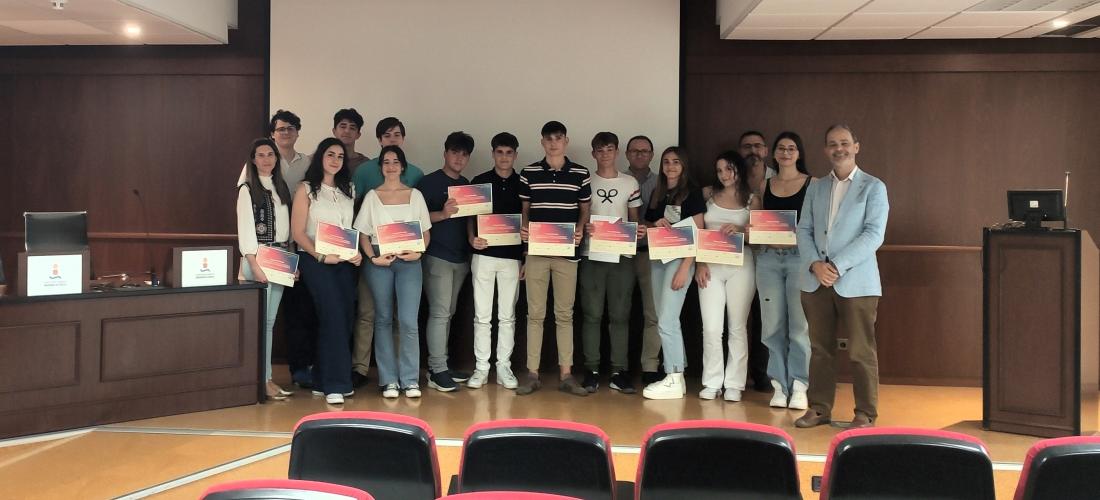The ETSi hosts the territorial phase of the Teleco Olympics
The Higher Technical School of Engineering of the University of Seville has hosted the territorial phase of the Teleco Olympics . This competition, whose objective is to promote telecommunications engineering studies among young students, welcomed 109 students from 8 institutes in the province of Seville in this second edition.
The ETSi organized the territorial phase, which was divided into two parts, one in which they had to solve a team challenge, and another in which they faced each other individually.
The team test consisted of the presentation and defense, before a group of university experts, of a prototype (based on any programmable platform with the Arduino IDE) that demonstrates how telecommunications helps meet the development objective. sustainable 3 (SDG 3): HEALTH AND WELLBEING.
Meanwhile, the individual test proposed the resolution of a set of problems related, directly or indirectly, to Telecommunications Engineering. It is assumed that, to face these problems, students have the fundamental physical-mathematical tools acquired throughout Compulsory Secondary Education (ESO) in their Science itinerary. In this way, it is expected that students can work with real numbers, represent functions, apply the fundamentals of statistics, solve equations and operate with vectors; solve problems using trigonometry and calculate areas and volumes; learn Newton's laws and the fundamentals of energy and solve problems about forces and motion.
However, the focus of the test is on the ingenious use of these fundamental tools, since the demonstration of in-depth knowledge of them is the subject of other Scientific Olympiads.
After the two days of participation, the team result gave the first winner to one of those made up of students from the IES Alcaria de la Puebla del Rio, from which the third place winner also came. Likewise, the second position went to the team from Colegio Santa Ana, in Seville.
The Alcaria Secondary Education Institute, in Puebla del Rio, has been selected as the best center.
In the individual competition, for their part, all the winners turned out to be students from the Santa Ana School in Seville. In first place, Jesús Vílchez Martínez was classified; second, Araceli Guerrero Morano; and third, Rodrigo Lerma Carballo.
Both the first two finishers in the individual phase and the first team finisher will compete in the national phase, competing with the rest of the teams from all over Spain.
